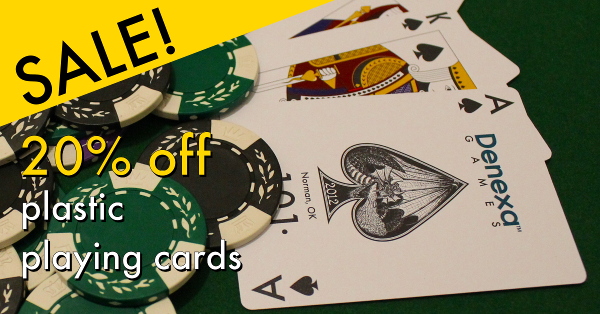Spades strategy
 Spades is one of those games with fairly simple rules but can have a complex strategy. While we can’t possibly share all there is to know about Spades strategy, here’s a few tips that will give you something to think about next time you play.
Spades is one of those games with fairly simple rules but can have a complex strategy. While we can’t possibly share all there is to know about Spades strategy, here’s a few tips that will give you something to think about next time you play.
Are bags really such a bad thing?
Most people will be pretty cautious about collecting too many bags, due to the hefty 100-point penalty assessed for collecting ten of them. But it’s worth remembering that in some situations capturing a bag or two can be a decent strategy, if you have a good reason for doing so.
The reason for taking bags that is easiest to spot is when your opponents are at risk of breaking contract. If it’s the end of the hand, you’ve made your contract, and your opponents are still a few tricks away from making theirs, it is generally a good idea to set them by denying them those last few tricks, ensuring they score zero for the hand, even if it means taking in a few bags.
If your opponents are within a few bags of getting that 100-point penalty, it may be a good strategy to risk taking a few bags yourself to try to trick them into going over the edge. Aggressive play at the beginning of the hand can put your opponents in a frame of mind where they’re worrying about making their contract, causing them to play even more aggressively and potentially take in tricks they don’t need.
On the other hand, keep your number of bags in mind. If you have more than seven or so bags, it’s probably not a good option to risk taking the bag penalty unless your opponent will be taking it with you.
In some games, you don’t need to worry about bags at all. In games played to only 200 or 300 points, chances are you simply will not have enough time to accrue ten bags. Longer games, such as 500-pointers, make the bag penalty more dangerous.
Card counting
Since Spades is only played with one fifty-two card deck (like Denexa 100% Plastic Playing Cards), players with a good memory can easily keep track of what cards have been played and what haven’t. You don’t even need to remember every card; just keep track of those that are important to your hand. If you hold the Q♦ and you know the K♦ and A♦ have not been played, you know that it’s more likely that your queen will be beaten. Of course, no matter what your hand is, it’s usually a good idea to keep track of the spades that have been played, since those cards can be used to trump most any card in your hand.
When you have a lot of spades
Holding a lot of spades opens up a few new opportunities to a player. Naturally, you know that there will be fewer spades in the hands of your opponents, and you can trump many more tricks. You can lead spades, and the other players will be forced to follow suit. This can give you useful information; if you lead spades and someone plays a different suit, you know that they will be less likely to overcome your non-spade cards. Repeatedly leading spades can force players to sacrifice all of their spades to follow suit, leaving them unable to use them to capture tricks.
The importance of position
Where you’re sitting can be as important in Spades as it is in poker. If you are the second to play, that is, right after the lead, playing a spade to try to take the trick can be a bad move, because your opponent to the left may simply play a higher spade, and your partner will have to play an even higher spade to win the trick. It is often better to play conservatively and use the opportunity to burn off a less valuable card.
On the other hand, when you are in the third seat (your partner is the leader), it is usually appropriate to play to lock down the trick. The only times you might not want to are when your partner leads with a nigh-unbeatable card.
Remember your partner
And above all, try to keep tabs on what your partner’s doing. If you notice that they appear to have no cards in a suit, but you’re long in it, you may want to lead that suit repeatedly so that your opponent can take the opportunity to play whatever they wish and potentially win the trick with spades.
Keep their bid in mind too. If your partner made a very high bid, they likely have an exceptionally powerful hand, so you should let them use it and try to stay out of their way. Likewise, if they made a very low bid, they probably have a weak hand, so you will have to be the one scoring the tricks for your partnership.



Leave a Reply